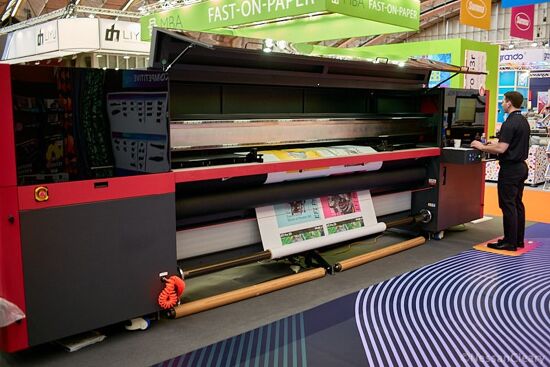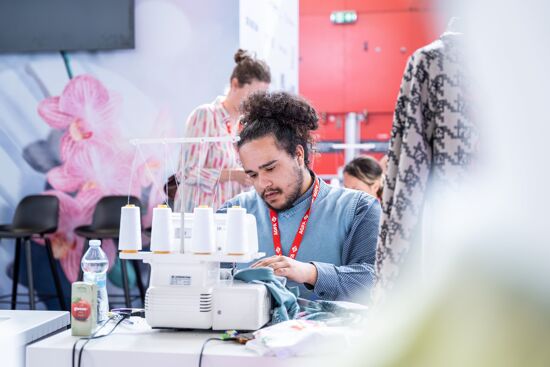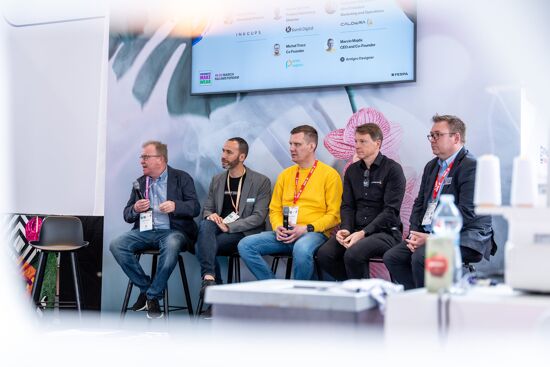Spreading the sustainability message: part 4

In the fourth part of a series of blogs, Laurel Brunner shares ideas for topics addressed in environmental policy statements.
Industry associations that serve the needs of illustrators, journalists, designers, authors, printer, publishers etc. are usually passive regarding the improvement of environmental impacts. In the previous blogs we have discussed the three Rs: Reduce, Reuse, Recycle, emissions controls, management and waste handling. In regard to materials usage – what should we consider when we produce a given print product and its recycling?
In the newspaper business this is a simple consideration since much of newsprint is made from recycled papers. Paper and board recycling should be a no-brainer for any industry association’s mission statement. Printing plates are another material that should be considered, examples include aluminium or flexo plates. Aluminium plates are a ready source of income for printing companies across the industry since the can be sold for recycling.
However, recycling the photopolymer that is used to make flexo plates used in newspaper printing, packaging and other applications is a little trickier. However, this does not mean that it is impossible. Some manufacturers like Flint Group and DuPont provide a recycling service but it is not free, and the waste is usually incinerated instead of being reprocessed into something useful. It is better to find ways of reusing the material such as chippings to cover horse arenas and playing fields or as a building material. It is important to find and work with organisations that can use the used flexo plates without reprocessing them back into their component materials or burning them. This is an additional opportunity for industry associations to make recommendations or create partnerships with companies who can build suitable recycling supply chains.
The English have a saying, “where there is muck there is brass” which means that waste (the muck) is a source of revenue (the brass). Printing plates are currently earning their users and manufacturers money via recycling. Innovation and entrepreneurialism can take ideas for reusing plate materials in other ways, to use then in other viable new businesses based on improving environmental impact and profit. Invention begins with little, tiny things so perhaps printing and publishing industry policy statements will help create small opportunities. Industry associations are preferably situated to kick start new ideas for reducing environmental impact via improved waste handling from paper to plates. However, it takes awareness of the problem before ways of solving it can be worked out.
Source: This article was produced by the Verdigris project, an industry initiative intended to raise awareness of print’s positive environmental impact. This commentary helps printing companies keep up to date with environmental standards, and how environmentally friendly business management can help improve their bottom lines. Verdigris is supported by the following companies: Agfa Graphics, Spindrift.click, EFI, FESPA, HP, Kodak, Kornit Digital, Ricoh, Splash PR, Unity Publishing and Xeikon.
Topics
Interested in joining our community?
Enquire today about joining your local FESPA Association or FESPA Direct
Recent news

Are analytics services worthwhile for wide format printing?
Nessan Cleary shares how press manufacturers are increasingly offering machine analytics services and shares if these are good value for money in the wide format sector.

Smart factories and customisation technology explored at Personalise Make Wear 2024
FESPA's Textile Ambassador, Debbie McKeegan speaks to industry specialists at Personalise Make Wear at Personalisation Experience and Sportswear Pro 2024 held in Amsterdam. Each day of the exhibitions Debbie hosted a fire-side chat with these specialists to discuss various industry topics. During this Fire-side chat with Antigro, Caldera, Print Logistics, Inkcups and Kornit Digital they discuss the role of digital technologies in personalisation, reshaping the supply chain, the future of manufacturing and more.

The pros and cons of Digital Signage and Printed Signage
Sonja Angerer discusses the pros and cons of both digital signage and printed signage. Current developments such as artificial intelligence and spatial computing are changing the situation once again. How will this shift affect printers?
